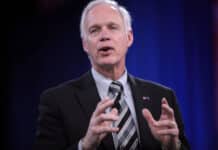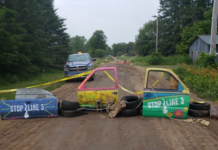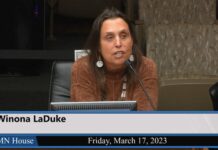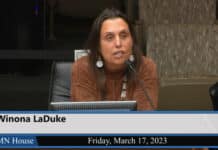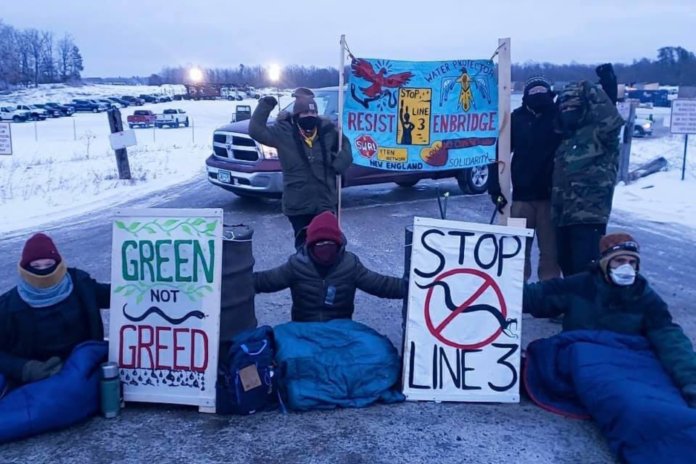
A Minnesota-based environmental activism group is apparently “planning to take action that carries a high likelihood of arrest,” according to an email from the organization.
The group, MN350, fervently opposes construction of the Line 3 oil pipeline, citing its contribution to the oil industry and perceived impact on tribal lands. Rather than building the line, the group says it would like to see America “transition” to a “life-affirming economy” without fossil fuels.
To accomplish this goal, MN350 has joined forces with the Red Lake Treaty Camp, Honor the Earth, R.I.S.E., Camp Migizi and the Giniw Collective (founded by Tara Houska) to staff a series of “resistance camps” aimed at halting the pipeline project.
In a recent email to supporters, MN350 explained how people can join their cause at the camps, participating in protest actions that involve different “levels of risk.”
The message describes how anti-pipeline demonstrators who don’t want to face jail can choose to partake in “green” level protests, “taking every reasonable measure to avoid arrest.” However, those who feel so compelled may choose to participate in “orange” or even “red” level events that carry “greater risk” or “a high likelihood” of arrest, respectively.
It seems that orange and red protests involve what MN350 calls “direct action” — methods of protest that seek to physically prevent work on Line 3.
At least one arrest has been made as a result of such protests, according to a local news station. Meanwhile, protest groups have uploaded images and video that show their members halting construction-related vehicles, chaining themselves across roads, locking themselves to excavators and occupying sections of pipe that are supposed to be added to the line.
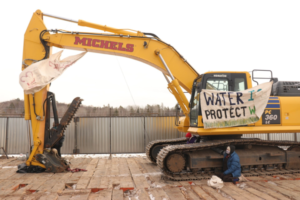
One group of protesters also drove their gas-powered SUVs recently to display their opposition to the oil pipeline.
The Line 3 project aims to replace deteriorating 1960s oil transportation infrastructure with a safer, more efficient pipeline, according to the Minnesota Public Utilities Commission. Construction of the line was originally required by the Obama administration and presently enjoys bipartisan support.
